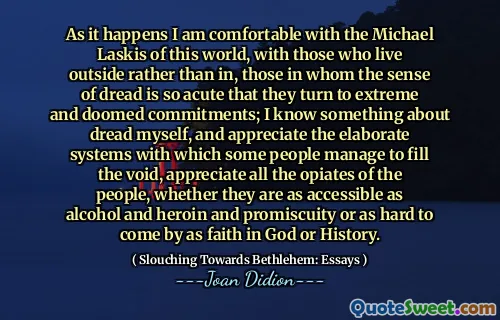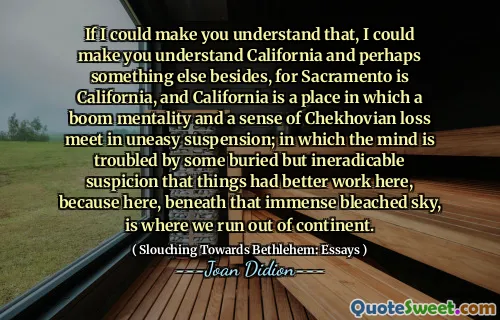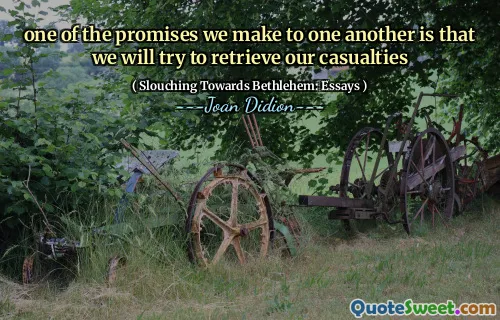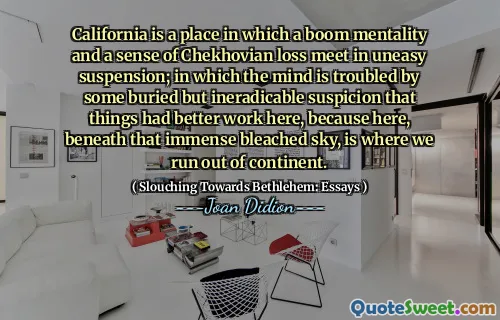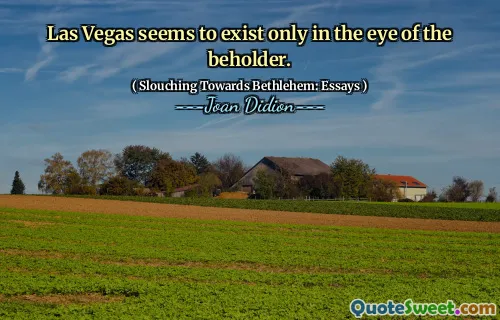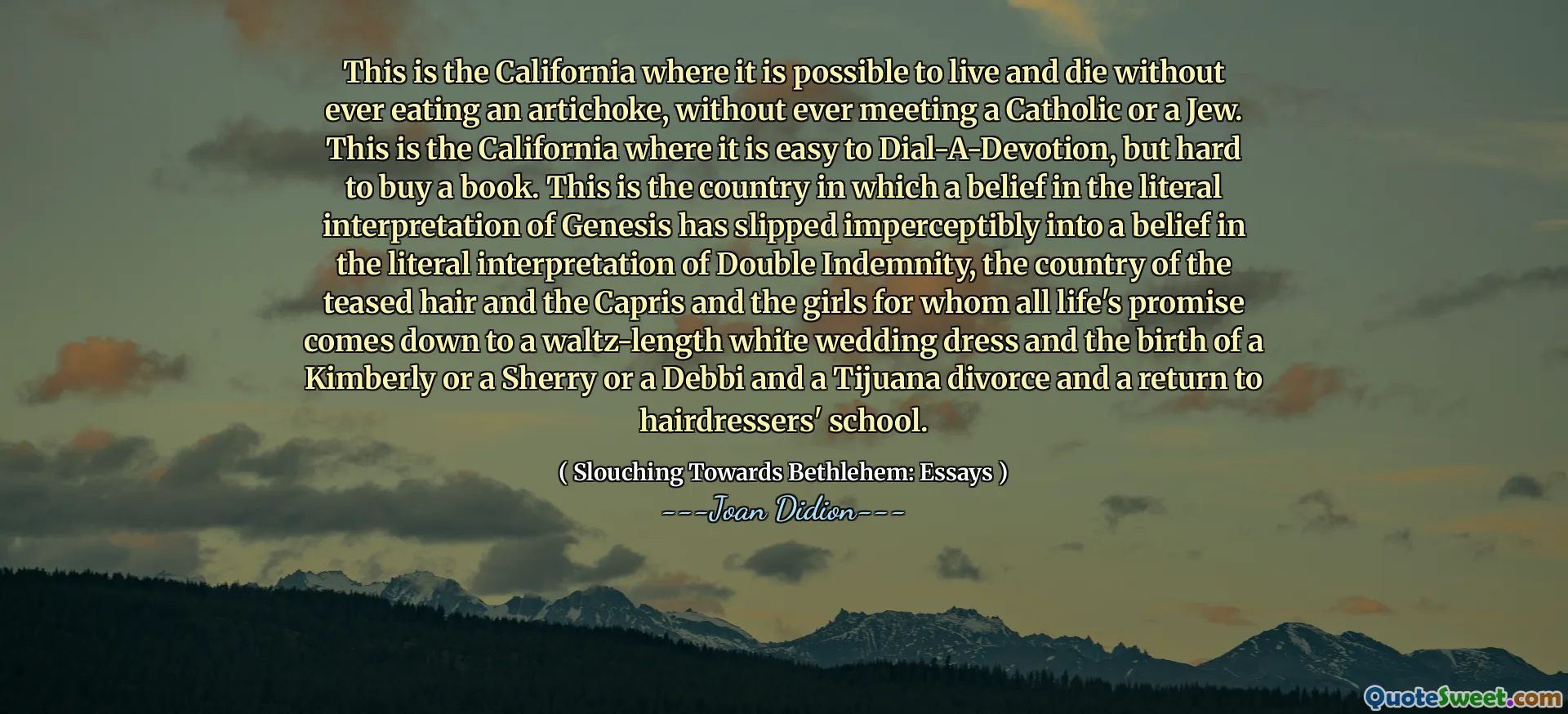
This is the California where it is possible to live and die without ever eating an artichoke, without ever meeting a Catholic or a Jew. This is the California where it is easy to Dial-A-Devotion, but hard to buy a book. This is the country in which a belief in the literal interpretation of Genesis has slipped imperceptibly into a belief in the literal interpretation of Double Indemnity, the country of the teased hair and the Capris and the girls for whom all life's promise comes down to a waltz-length white wedding dress and the birth of a Kimberly or a Sherry or a Debbi and a Tijuana divorce and a return to hairdressers' school.
In this vivid depiction of California, Didion highlights the paradoxes of contemporary life in the state. She describes a landscape where people exist in a bubble, potentially never encountering diverse cultures or experiences, like artichokes or other religious communities. This notion of isolation extends to the superficial priorities many hold, evidenced by their engagement with convenient spiritual practices over intellectual pursuits such as reading.
Furthermore, Didion critiques the prevailing mindset, pointing to a society that prioritizes sensationalism and superficiality over genuine understanding and connection. Her portrayal of women’s lives, defined by societal expectations and cycles of disappointment, underscores a broader commentary on the emptiness and materialism in Californian culture during that era. This complex relationship with identity and aspiration reveals a deeper disillusionment prevalent within the community.
